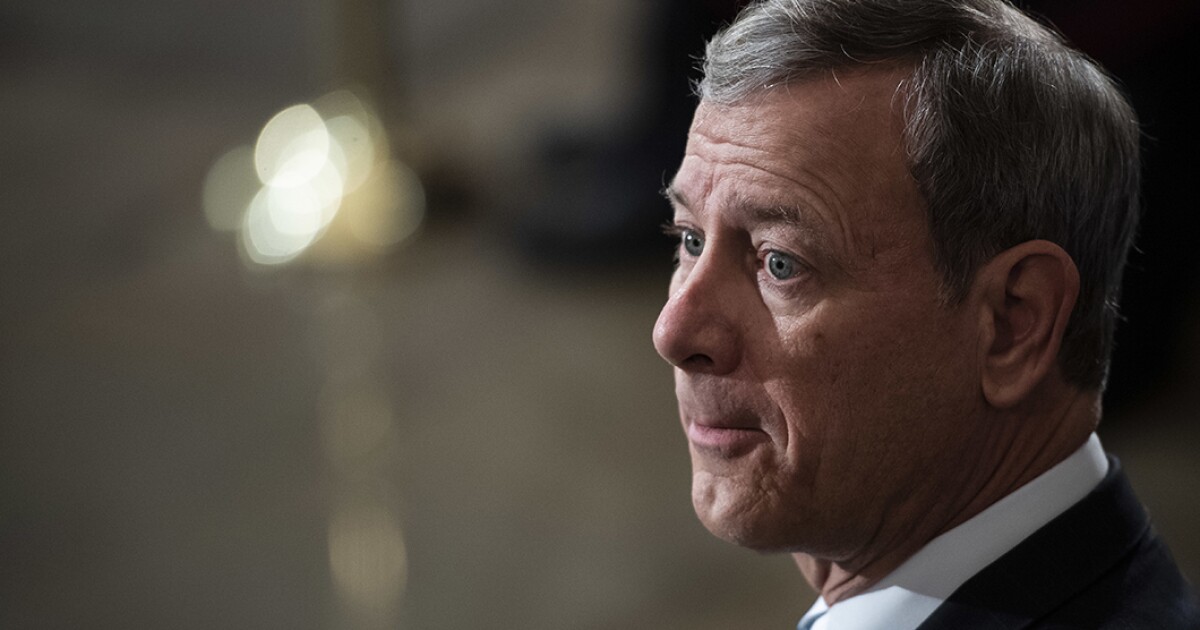

Supreme Court Chief Justice John Roberts cleared the way Monday for Indiana to begin enforcing a law that restricts minors’ access to abortion without parental consent.
Roberts granted a request from the state to fast-track normal procedures and apply the Supreme Court’s opinion from June overturning Roe v. Wade to a federal appeals court, allowing the court to lift a stay on the law.
HOUSE PASSES BILL AIMED AT PROTECTING OUT-OF-STATE ABORTIONS
The U.S. Court of Appeals for the Seventh Circuit had previously said that it had to wait until it received formal notification of the Supreme Court’s judgment, which is typically relayed to lower courts on July 25, before it could enforce the law, as reported by NBC News.
The law in question has been blocked since it was passed in 2017 by lower courts due to the precedent set by Roe v. Wade and other rulings. Indiana asked the Supreme Court last Thursday to issue the judgment immediately bypassing the normal 30-day time frame, arguing that there was no longer a legal basis to block its enforcement of the law.
“Delay would only serve to prevent enforcement of a duly enacted state statute designed to protect minors, families, and the unborn,” lawyers for Indiana said in their request.
Indiana had originally directed their request to Justice Amy Coney Barrett, who typically handles appeals from that portion of the country, but she referred it to Roberts presumably because she sat on the appeals court when the case was initially before it.
The law requires individuals under 18 years old to have consent from a parent or a guardian to get an abortion unless they petition the court to waive the consent requirement.
CLICK HERE TO READ MORE FROM THE WASHINGTON EXAMINER
Indiana has recently been roped in the case of a 10-year-old Ohio rape victim who crossed into the state seeking an abortion. Dr. Caitlin Bernard, the Indiana doctor who provided care for the victim, was found not in violation of any state privacy laws and had filed a report to the state’s health department after Attorney General Todd Rokita announced his office would investigate if the doctor had failed to report the procedure.





